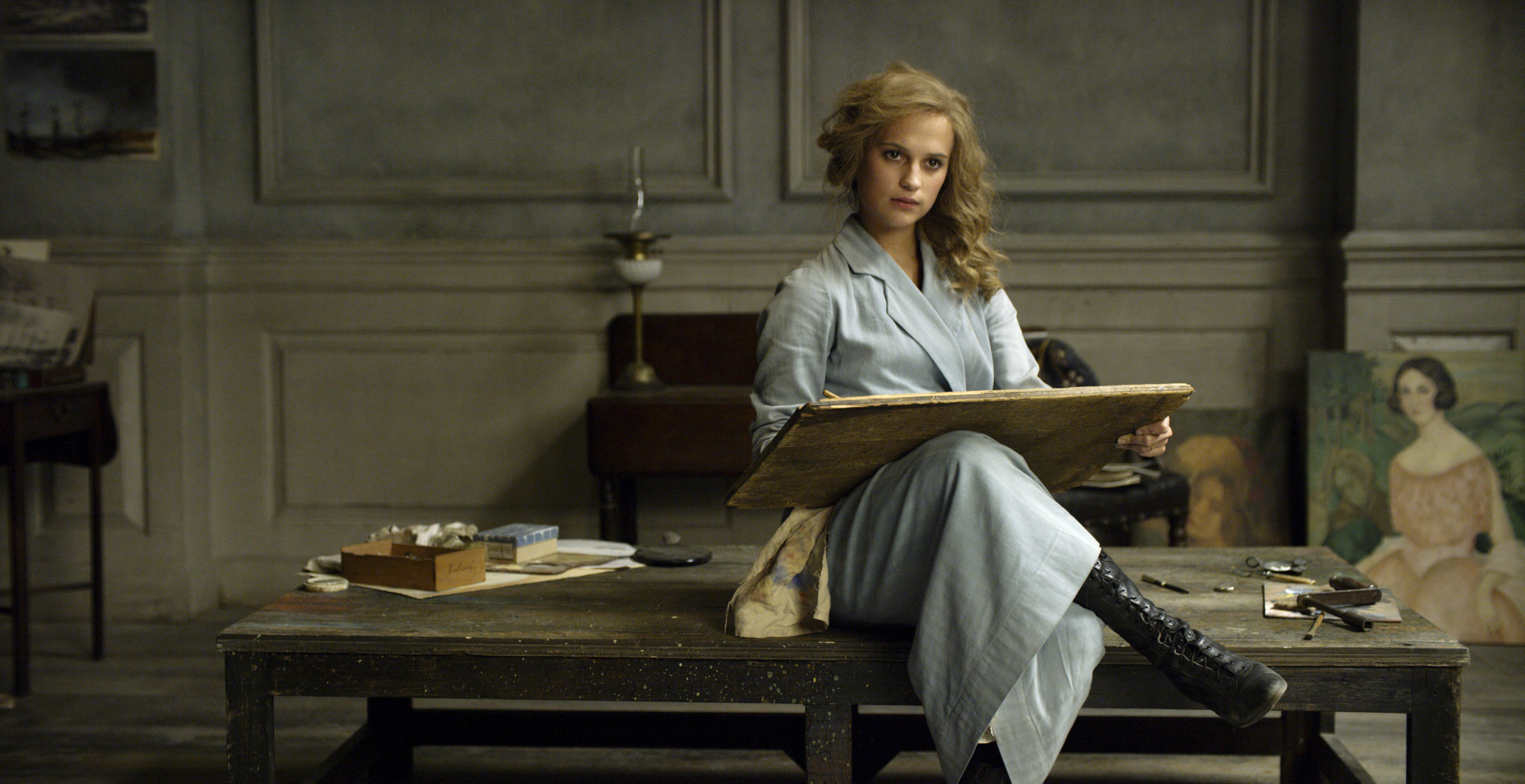The Danish Girl (2015)

The Danish Girl (2015), directed by Tom Hooper, is a biographical drama inspired by the lives of Lili Elbe and Gerda Wegener, whose journey represents a pioneering story in the history of transgender identity and acceptance. Based on the novel by David Ebershoff, the film stars Eddie Redmayne as Lili Elbe (formerly Einar Wegener) and Alicia Vikander as Gerda Wegener, bringing their remarkable story to life with heartfelt performances that explore identity, love, and self-discovery during a time of rigid social norms.
The story begins in 1920s Copenhagen, where Einar Wegener (Eddie Redmayne) is a successful landscape artist and Gerda (Alicia Vikander) is a portrait painter striving for greater recognition. The couple shares a passionate and supportive relationship, marked by mutual respect for each other’s artistic talents. Their lives change dramatically when Gerda asks Einar to pose in women’s clothing as a stand-in for a missing model for one of her portraits. The act of donning feminine attire awakens long-suppressed feelings within Einar, and he begins to identify more and more as a woman, eventually taking on the name Lili Elbe.

As Lili’s true identity emerges, she faces internal and societal struggles. The film sensitively depicts Lili’s journey of self-realization and her growing determination to live authentically, even as it risks everything she and Gerda have built together. Eddie Redmayne delivers a nuanced and emotionally resonant performance, capturing both the vulnerability and courage of a person coming to terms with their true self in a society that offers little understanding or acceptance. Lili’s transformation is portrayed not as a sudden change but as a gradual, often painful process marked by moments of self-doubt, hope, and defiance.
Gerda, meanwhile, finds herself grappling with the profound changes in their relationship. Alicia Vikander’s portrayal of Gerda earned her an Academy Award for Best Supporting Actress, and for good reason. Gerda’s journey is as central to the story as Lili’s, reflecting the complexities of love, loyalty, and self-sacrifice. She supports Lili through difficult moments, even as she struggles to reconcile her love for the person Einar once was with the emerging identity of Lili. Their relationship evolves into a deeply touching portrait of compassion and resilience, underscoring the challenges faced by both partners in navigating Lili’s transition.
As Lili becomes more confident in her identity, she decides to undergo one of the first gender confirmation surgeries, a highly experimental and dangerous procedure at the time. The film portrays Lili’s courage in taking this step, as well as the medical community’s mixed reactions, ranging from dismissive to supportive. The surgeries, performed in Germany, mark a pivotal moment in Lili’s journey and in the history of transgender healthcare, even as they bring significant physical and emotional risks.
The cinematography by Danny Cohen captures the elegance and intimacy of 1920s Europe, immersing viewers in both the beauty and constraints of the period. Hooper’s direction emphasizes the interior lives of the characters, creating a sense of empathy and understanding for their struggles. Alexandre Desplat’s musical score complements the film’s emotional beats, enhancing its impact without overpowering the narrative.
The cinematography by Danny Cohen captures the elegance and intimacy of 1920s Europe, immersing viewers in both the beauty and constraints of the period. Hooper’s direction emphasizes the interior lives of the characters, creating a sense of empathy and understanding for their struggles. Alexandre Desplat’s musical score complements the film’s emotional beats, enhancing its impact without overpowering the narrative.

In conclusion, The Danish Girl is a poignant and beautifully crafted film that explores the complexity of gender identity and the resilience of the human spirit. It offers a window into the struggles faced by transgender individuals in the past, while resonating with contemporary audiences as a story of courage, love, and authenticity. Eddie Redmayne and Alicia Vikander deliver unforgettable performances, making this a film that lingers long after the credits roll, inviting reflection on both personal and societal levels.











